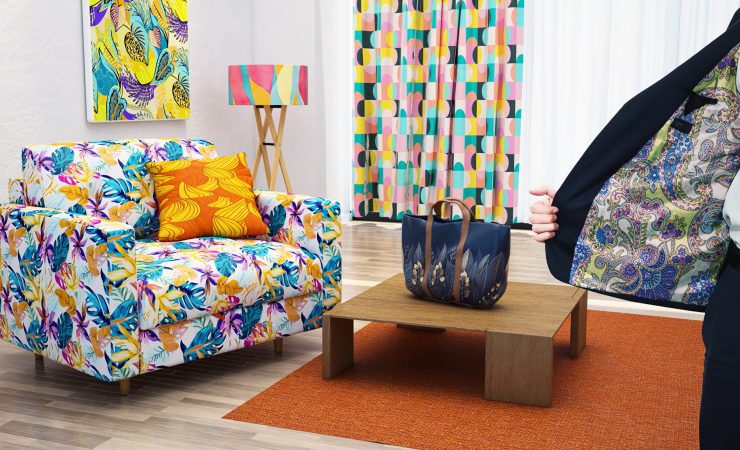Mimaki Europe has announced the commercial release of the textile pigment transfer printing system it previewed at ITMA 2023. Named Trapis, and to be available later this year, the commercialised product offers an ‘environmentally friendly and easy to operate solution’ for textile applications, with a claimed 90% wastewater saving compared to conventional methods.
Trapis works via a two-step process in which the design is printed by the 1.6m inkjet printer with a dedicated ink onto transfer paper, and then transferred to the application via a calender, similar in process to dye sublimation transfer but not requiring polyester-based fabric and able to print on natural as well as synthetic and mixed fibres with one type of ink.
Unlike both analogue and digital conventional dye-printing methods, it generates almost no wastewater, emitting only that which is produced during the printer’s automatic maintenance. In conjunction with no pre-treatment or washing of the fabric being needed, Mimaki estimates this saves around 14.5l/sqm of water compared to digital dye printing. The company also points out that not needing wastewater treatment facilities saves space and cost and allows the printer to be installed in a greater variety of locations with restricted space, though the calendar will also need to be accommodated somewhere.
Mimaki says the system is simpler to operate than seven or more step processes for other roll fabric digital and analogue printing and offers simplified maintenance as there is no fabric conveyor. The ink also has ZDHC MRSL Lv.3 certification and is Bluesign approved, to ensure that it is both worker and consumer safe, as well as an environmentally friendly.
Mimaki says the prints produced with Trapis maintain stretchability and colourfastness, without affecting breathability and water absorbability, important for sectors like home textiles, activewear and fashion.
Arjen Evertse, general manager sales, Mimaki Europe, commented, ‘After the positive reception we received when we initially showcased the technology last year, we’re pleased to now announce the release of this solution commercially at Fespa. Conscious of the evolving sustainability standards and customer demands, we created TRAPIS as an innovative and seamless system for print service providers looking to produce high-quality and vibrant textile applications, while keeping cost, time and environmental impact to a minimum.’

